Our bus leaves for Chefchaouen at 12pm and we find a taxi down in the car park where we had the five euro spin the day before.
Catching a taxi is quite complicated. The person you think is going to drive you, ends up being the hawker who then wants extra money for finding you a taxi that you could have found yourself. We finally agree on a price with the driver but the hawker is still outside the window trying to force another few euros out of us.
Simultaneously all five of us shout NO, which is so funny that we drive off in hysterics with him gesturing in the distance. We are becoming more assertive and I hope not too rude in the process.
Public transport in Morocco has really improved in twenty years. Now instead of having to stand next to the luggage compartment of the bus, guarding your luggage until the bus starts moving, in case someone grabs it, everyone must have a ticket for each piece of luggage which they then present at their destination, to retrieve their bags.
It’s so civilised and easy and we are soon on our way.
Jasper announces that he feels much better now that we are on the bus. He was obviously quite freaked out by the whole experience of the last 24 hours.
It takes several hours to get to Chefchaouen and we are all so mellowed by the previous day’s exertions that we sleep a lot of the way.
The cool thing about our trip is that there are some places that I researched and organised so long ago, that they are a surprise to me. I don’t remember my reasoning for coming to Chefchaouen except I know it’s cool and now here we are.
We are met by Layachi who manages the airbnb house for a Spanish woman. We walk about five minutes from the road into the Medina and arrive in a sort of pedestrian crossroads (there being no cars in the Medina) with a water tap and fountain which sits right outside the door of our house.
Inside, the house is on three levels, with a roof terrace at the top. It is beautifully tiled throughout.
There is always a group of young men sitting on the front step, talking to the guy who sells fish outside the door. Opposite the house is a small restaurant where there are a couple of resident musicians who play music into the night.
Chefchaouen is fairly traditional and the call to prayer rings out across the Medina for an hour every early morning, which then sets off a resident rooster which, as it turns out, is virtually right behind our heads on the neighbouring roof.
Much living happens on the roofs of the buildings in the Medina. People rest or sleep on beds and couches, raise their chickens, do their craft and prepare food. We sit on our roof each evening and watch the sunset and wait for the evening call to prayer.

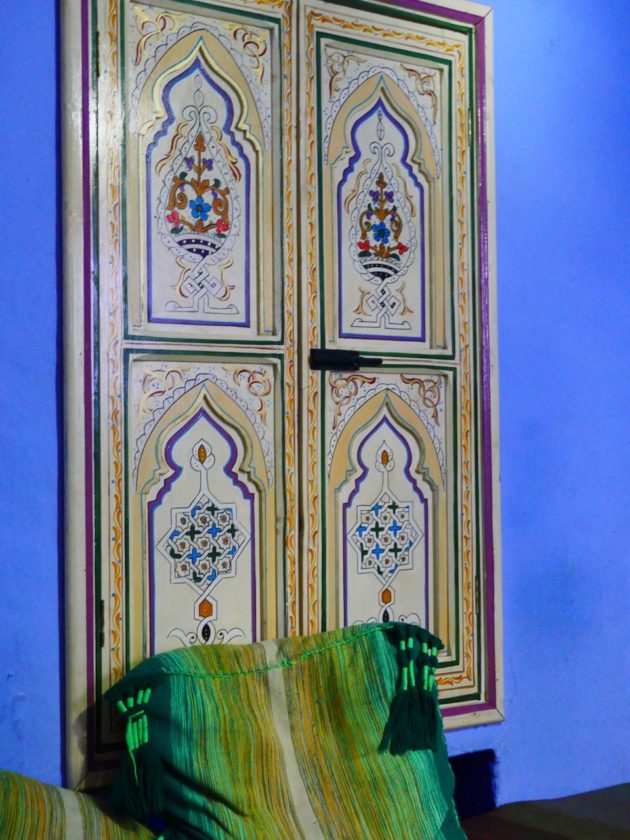
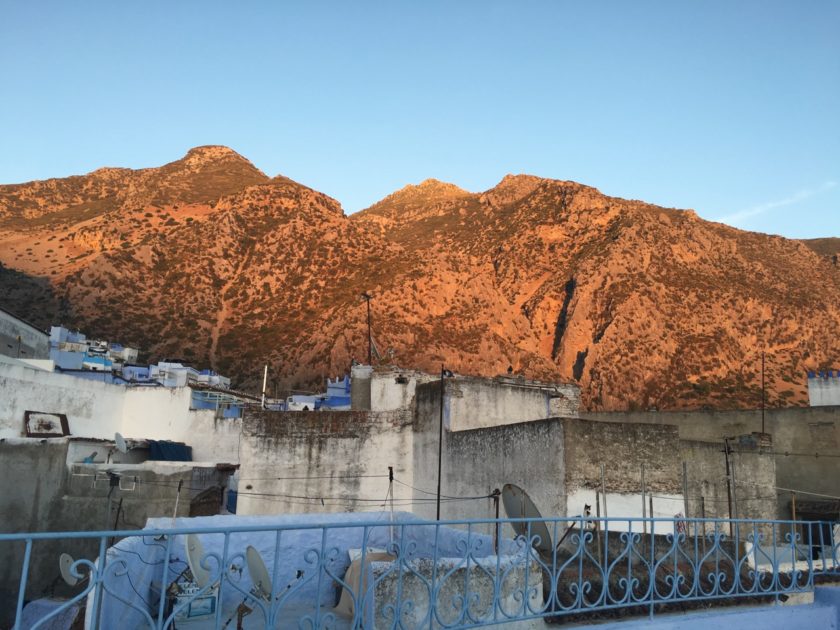


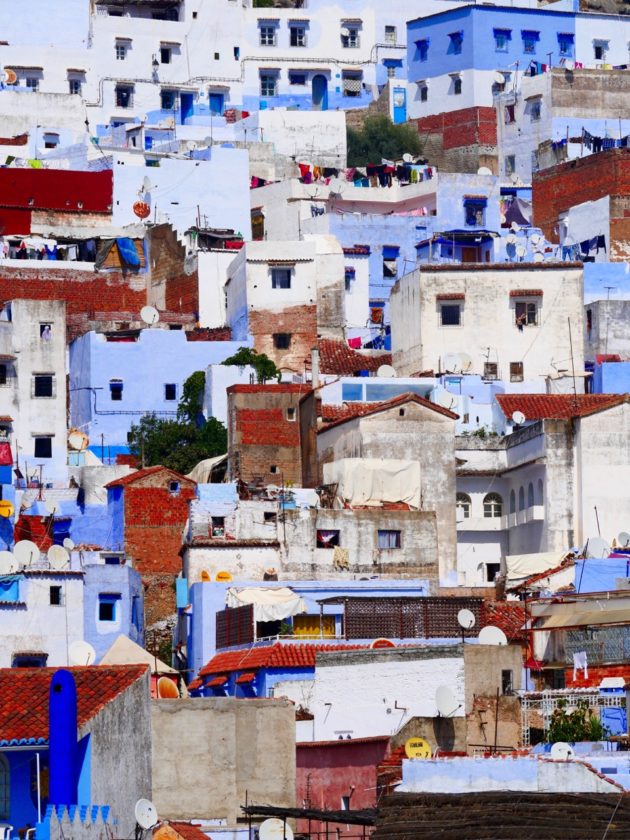
Chefchaouen was originally established in 1471, when, along with the Ghomara tribes of the region, Moorish and Jewish refugees came here after fleeing from the Reconquista of Spain. It started as a small Kasbah (fortress) which we visited, which was used in the protection of the city against the Portuguese invasions of Northern Morocco.
Nearly all of the buildings in the Medina are blue, which in Judaism, represents the sky as well as the heavens, reminding everyone to live a life full of spiritual awareness. It is also rumoured to repel mosquitos. The people of Chefchaouen are very proud of their houses and there always seems to be someone repainting their house with a fresh coat of blue.
In 1920 the city was seized to became part of Spanish Morocco and remained so until independence in 1956.

Our drinking has slowed down in Morocco as alcohol is suddenly quite hard to acquire. Layachi directs Roger to a hotel where he has to go behind a curtain to purchase a bottle of wine for 12 euro. This is the only place in town that sells alcohol and at that price, we’re going to have to be moderate. We sip from tiny glasses as we watch the neighbourhood from the roof.
Money that we spent on things like nice wine, in Auckland, now seem like a totally luxury item and we have become accustomed to spending much less lavishly on food and drink.
The days pass happily in our little house in the medina and because the food in Morocco is, thankfully, very cheap, we find a favourite restaurant nearby that makes delicious soup, tagine and couscous and we eat there at least once everyday.
Quite quickly it seems that we could spend much longer than a week here, growing into the rhythms of life in the Medina. But then, without a job, its fairly easy to fall into a rhythm of doing virtually nothing! Little rituals like buying bread and fruit from the tiny shop, going next door to hang out in the restaurant and, on a couple of occasions, accompanying the flamenco-playing Moroccan guitar player who lapses from traditional Moroccan/Spanish melodies into Tears in Heaven by Eric Clapton and on one occasion Dolly Parton.
We make friends with the men in the local carpet shop where Roger, surprisingly, ends up selecting a carpet and for good measure, I purchase a second one, because one can never have too many carpets, especially cheap old cool ones.
Chefchaouen’s abundant supply of marijuana is wasted on us, although with the price of wine, I briefly consider a switch of habit. There is always someone sidling up to Roger as he walks, asking whether he wants hash. The Rif mountains is the main maijuana growing area of Morocco and the hash salespeople are more persistent than even the carpet sellers.
Stella and I end up with a local companion called Mohammed who seems so keen to hang out with us that we are slightly unnerved. He is very lovely and so enthusiastic but surely there is a catch? My daughter’s hand? Or cash for being our guide.
He wants to walk with us all over Chefchaouen but we decide that the only way to lose him is to make our excuses at the door of our house. The downside of this is that now he knows where we live. Because I am not good at saying no, unless I know someone is genuinely crooked, I make encouraging kind of sounds when he suggests that he come back later and we play some music.
Later he knocks on the door and we are trapped inside, pretending we are not home.
This is one of the big disappointments of travelling for me; wanting to make friends with people but doubting their genuine desire to just have a conversation.
Just talking = For now we are just talking, but in a minute we’ll be talking about money and how you don’t have any and how I seem like a very nice person with lots of it.
Just Looking = Come into my shop and after you’ve had a look I won’t physically let you out until you tell me a price for something that you don’t really want, at which stage I will be offended at your offer and you will go to walk out but I will force you to name a price for the thing that you still don’t want and were just looking at out of politeness.
I walk with you = We walk around for a minute before chancing upon a friend of mine who happens to own a carpet shop where we will have tea and you will purchase carpets you don’t need.
My gift to you = I will give you this crappy thing that you don’t want and when you go to walk away we will have an awkward conversation about how the gift leaves you indebted to me, meaning that you now should purchase another more expensive thing that you don’t want.
Later on we finally answer the door as Mohammed has become quite persistent and the guys who sit outside on the step all day must have told him that we are still inside.
I tell him that sorry, we are a bit tired today, which is true, and there is a crazy sort of storm raging which is blowing bits of loose building materials of roofs, making it feel a little unsafe outside.
He says “don’t worry, we spend all day together tomorrow”.
What? You me and Roger? The awkward threesome, or him Stella and me (still awkward) or all of us and him (surely not).
The next day, the wind is still blowing a gale and we shelter inside.
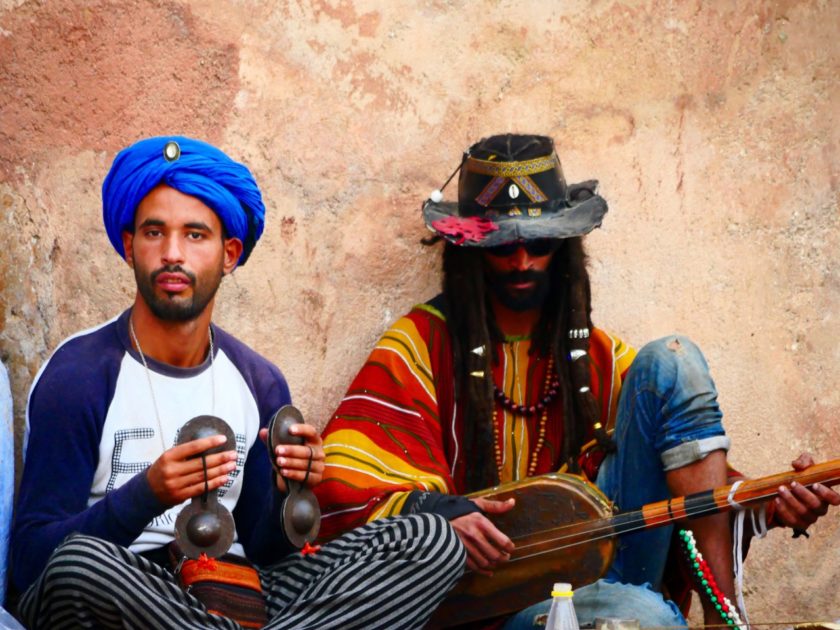
Mohammed and the Rasta Man
Our last evening is spent across the lane at Le Rêve Bleu where there are a number of interesting people to chat to. Our friend Mohsine, the owner and artist of the paintings hung around the cafe, brings out his secret stash of red wine and we spend a really nice evening in the warmth of the cafe with the wind howling outside. Two out of three children are down with stomach bugs so they hang out at home where they can shout from the window if need be and we have a truly relaxing time. Although as luck would have it, this is the night that a family from Spain, come to eat, with their five children, all of whom are very charming and would be good company for our socially starved children.
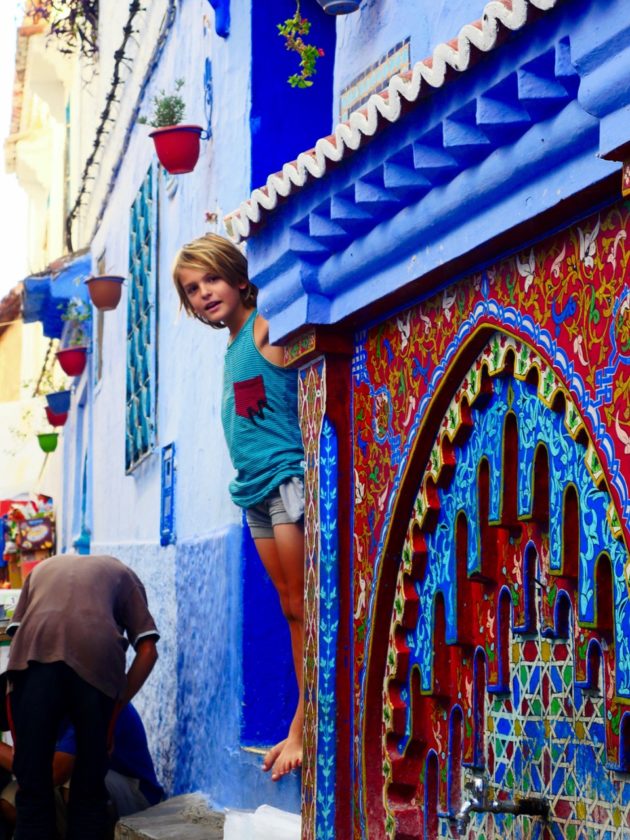


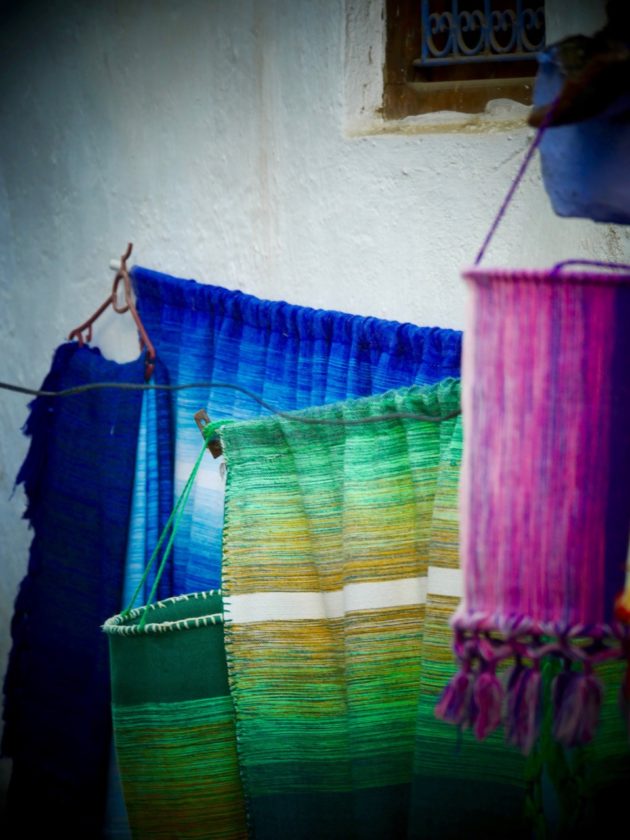
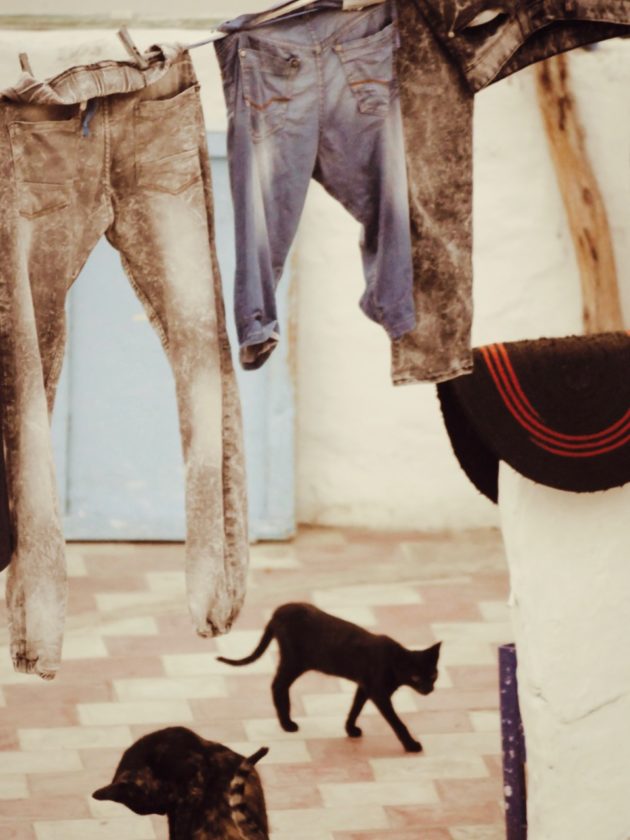
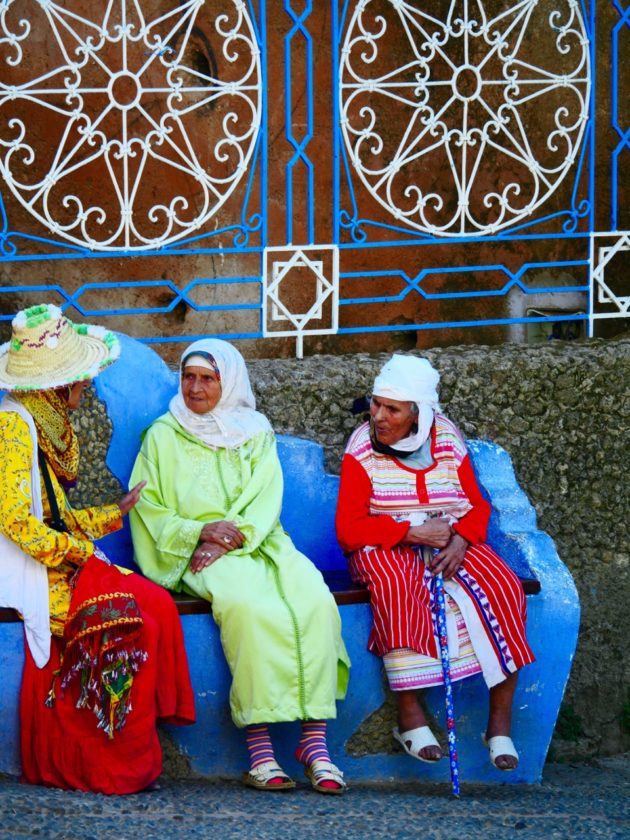
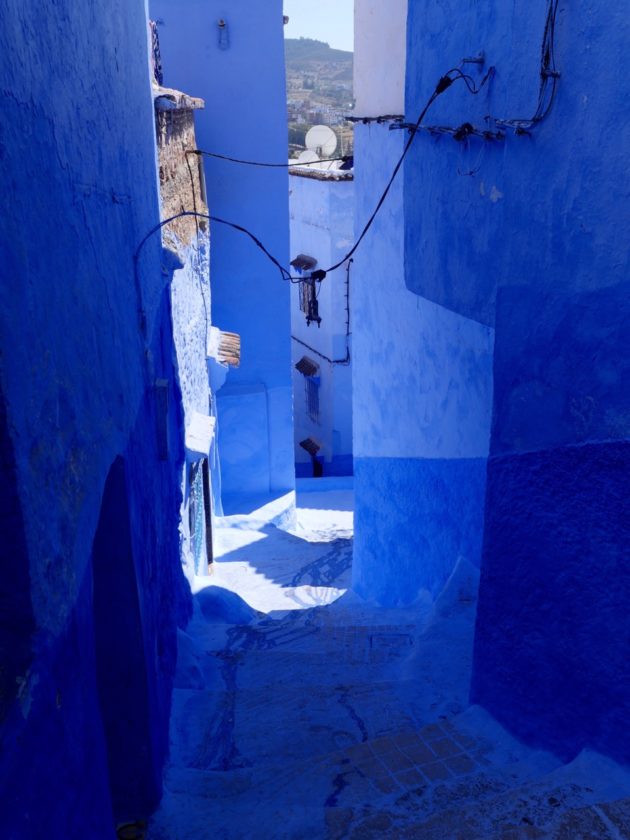
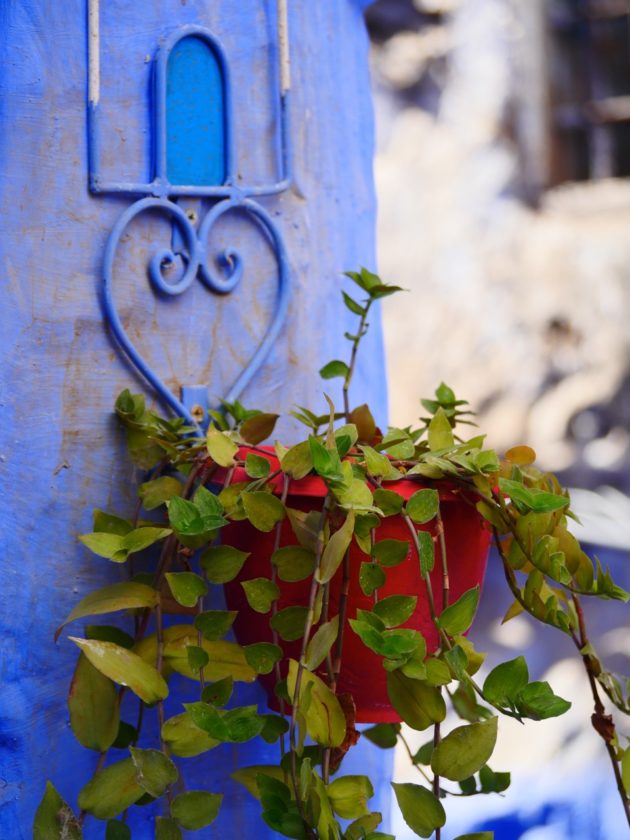
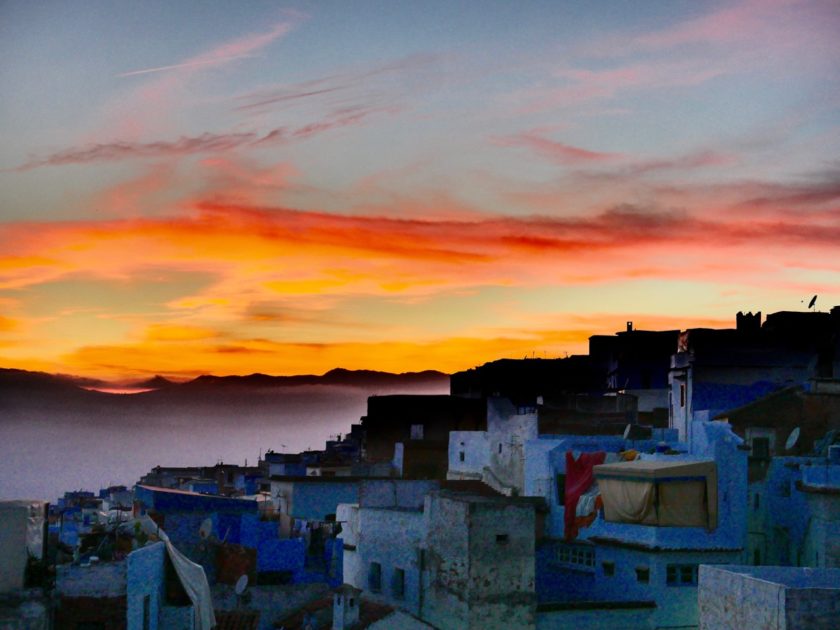
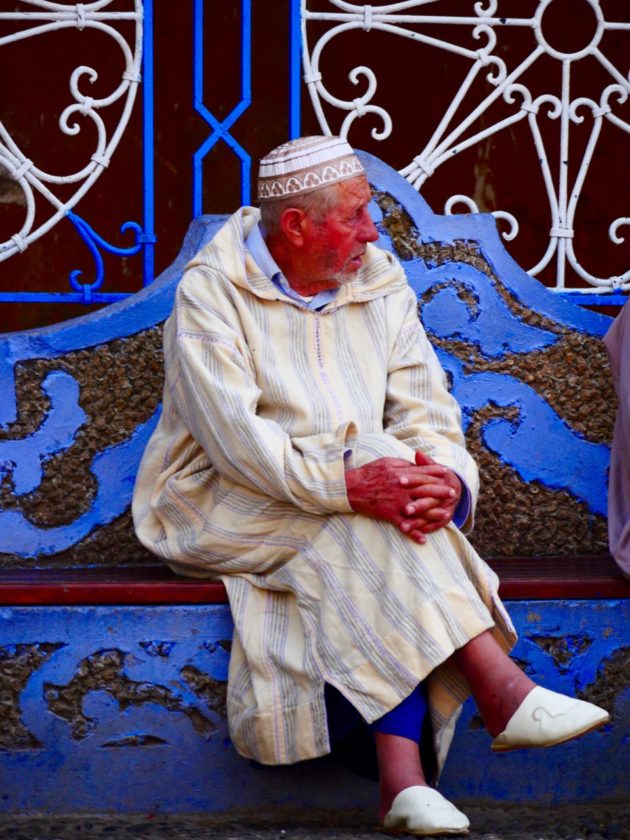
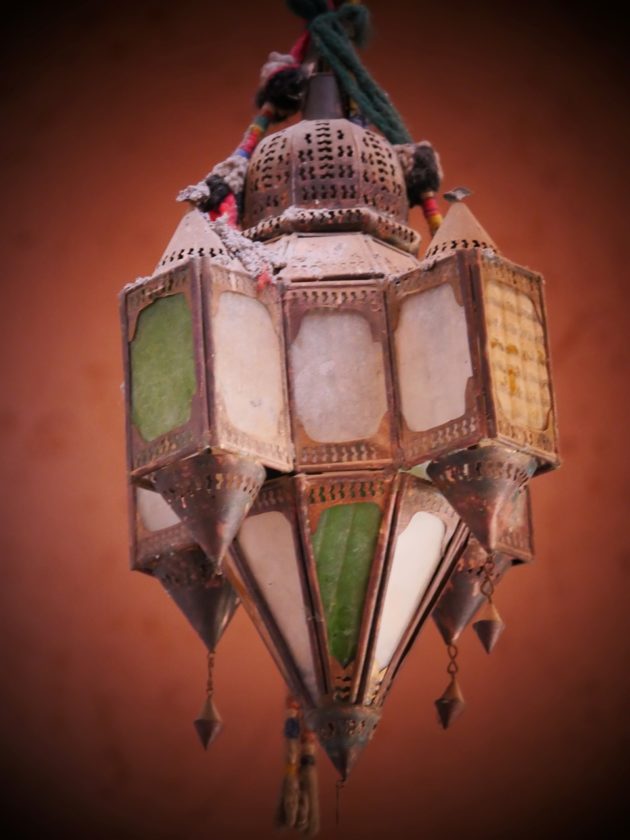


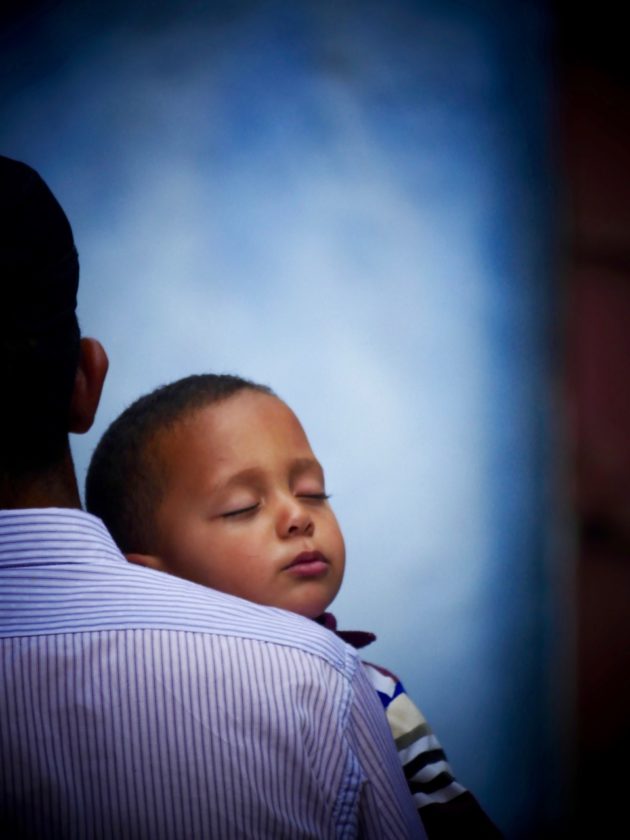

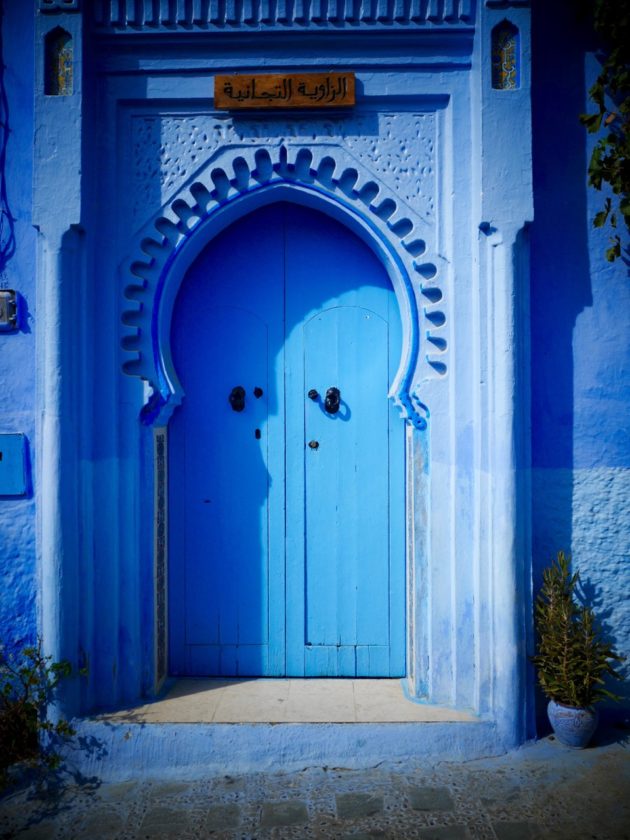
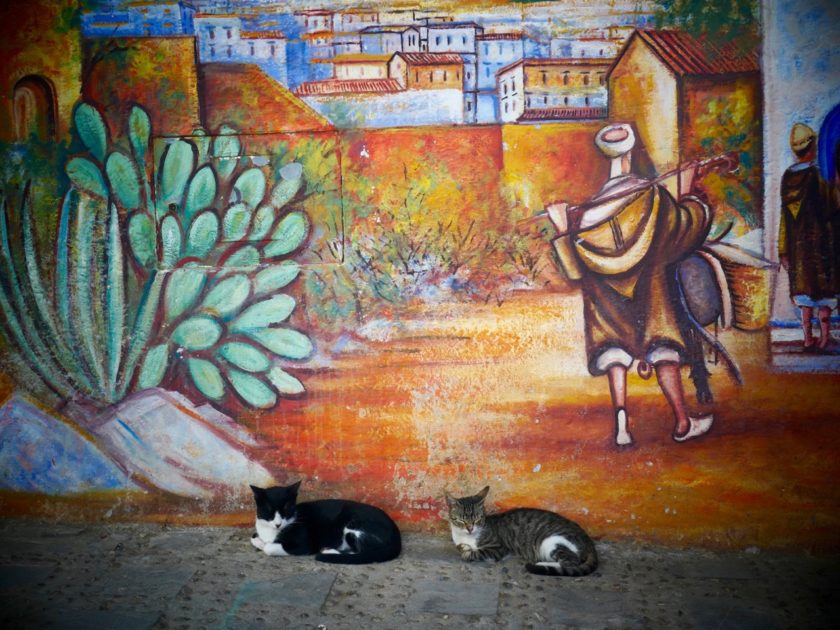


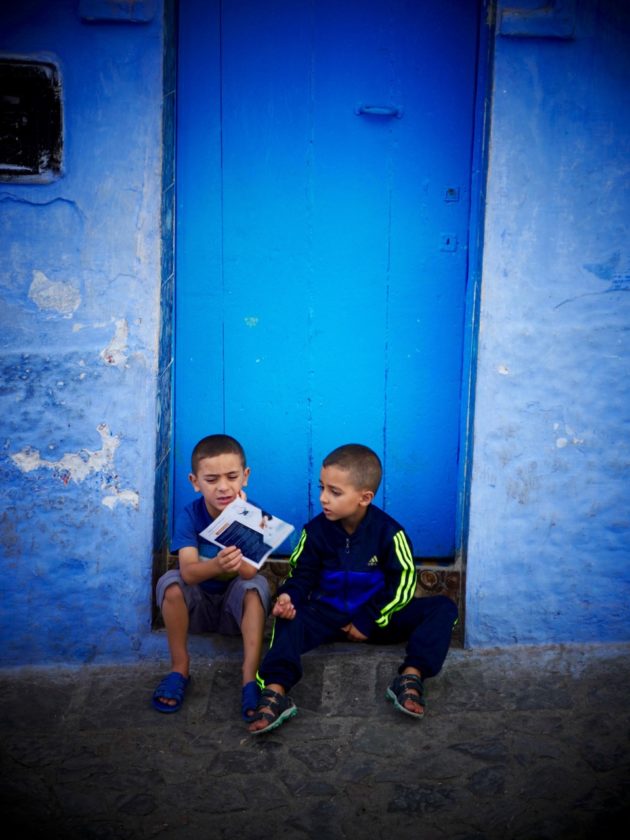

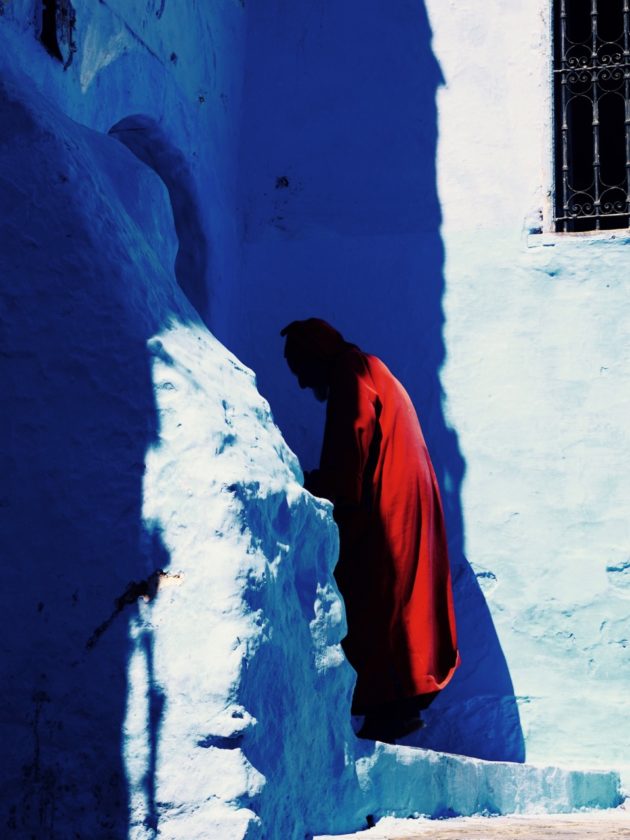
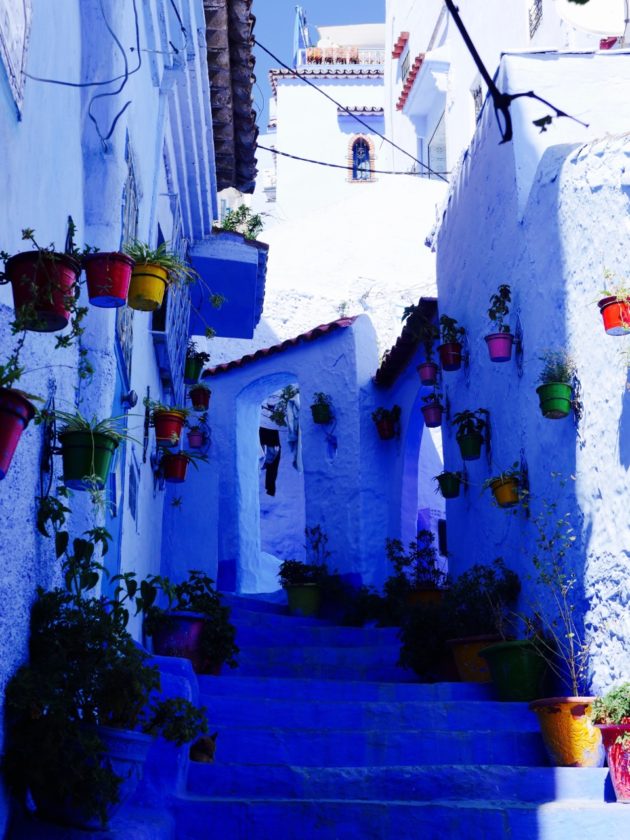
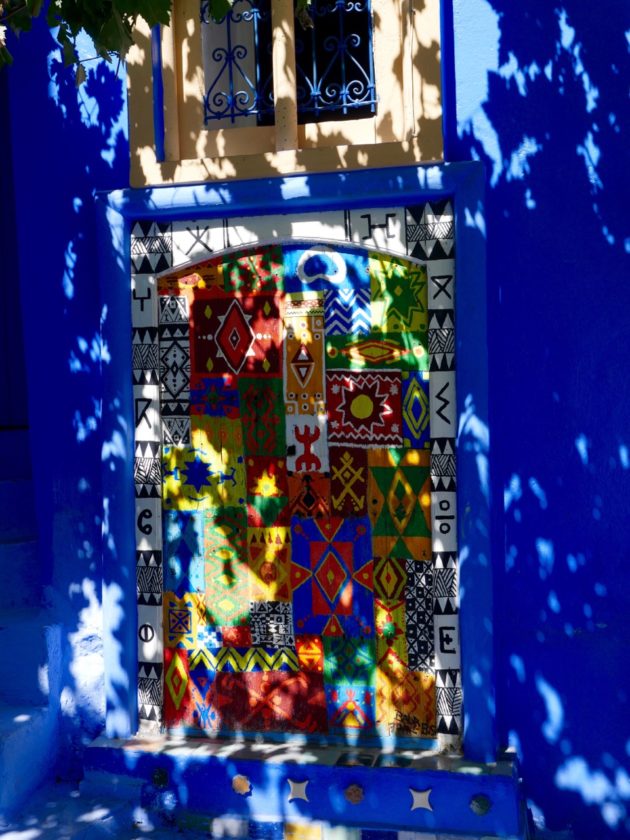
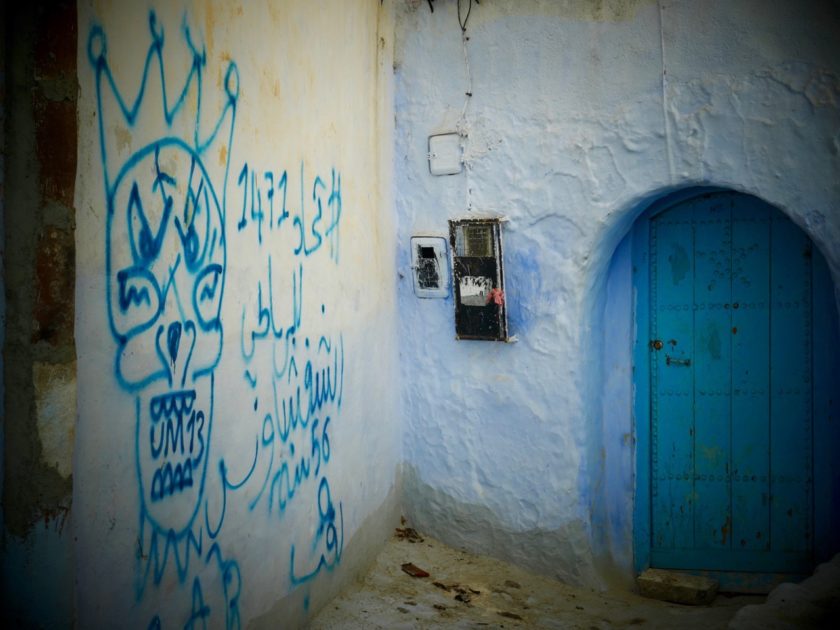


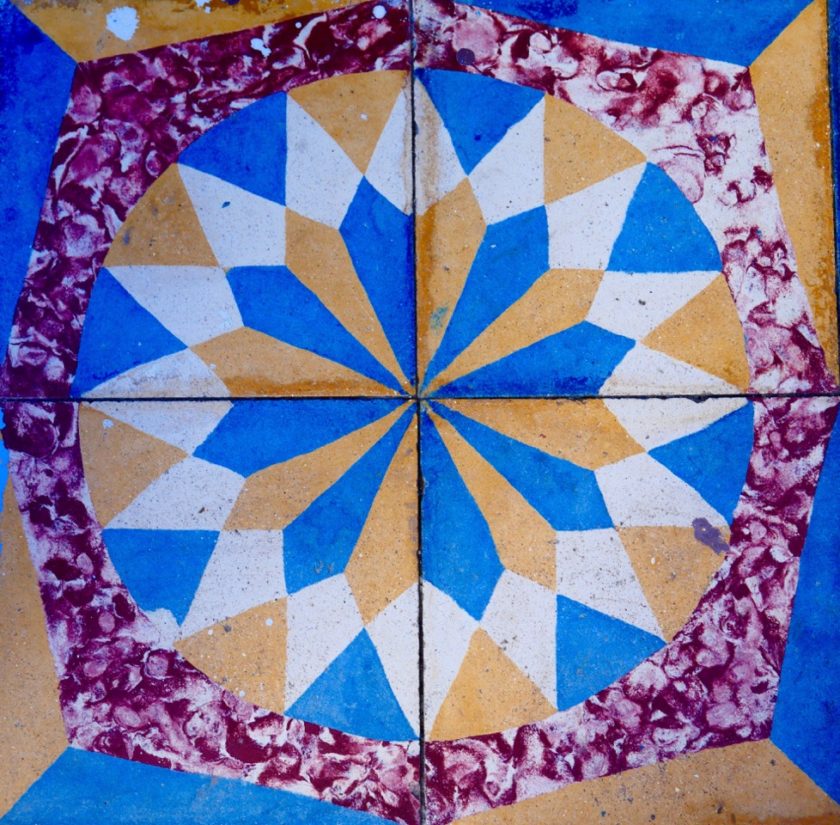

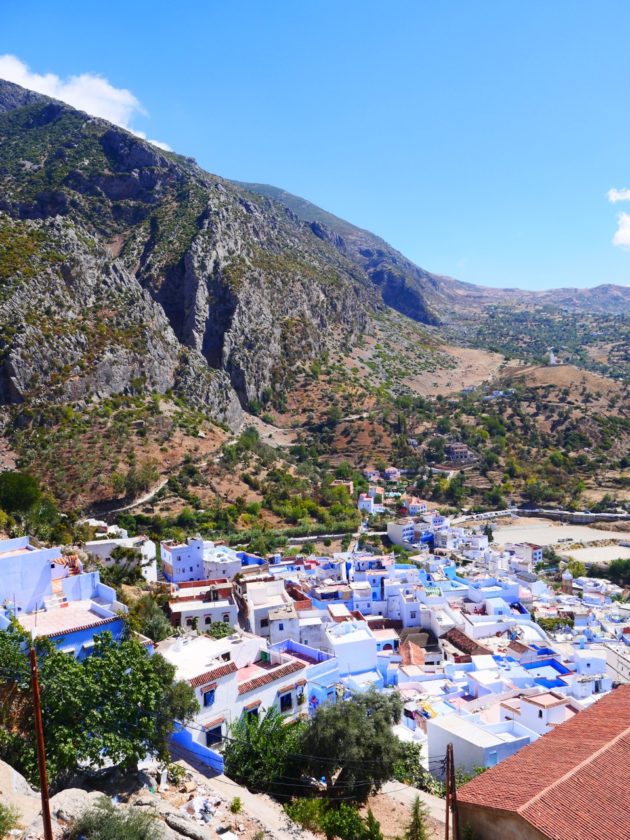
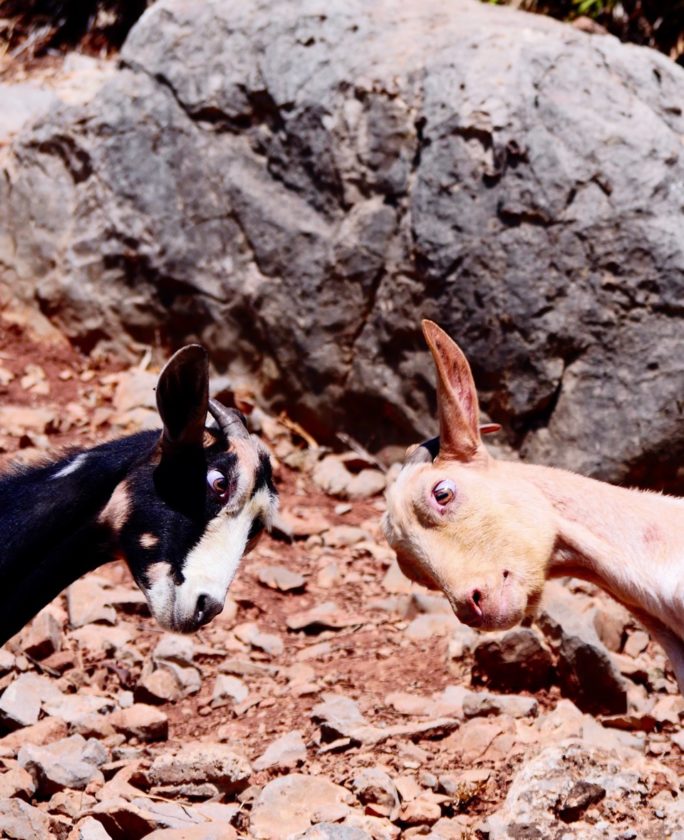


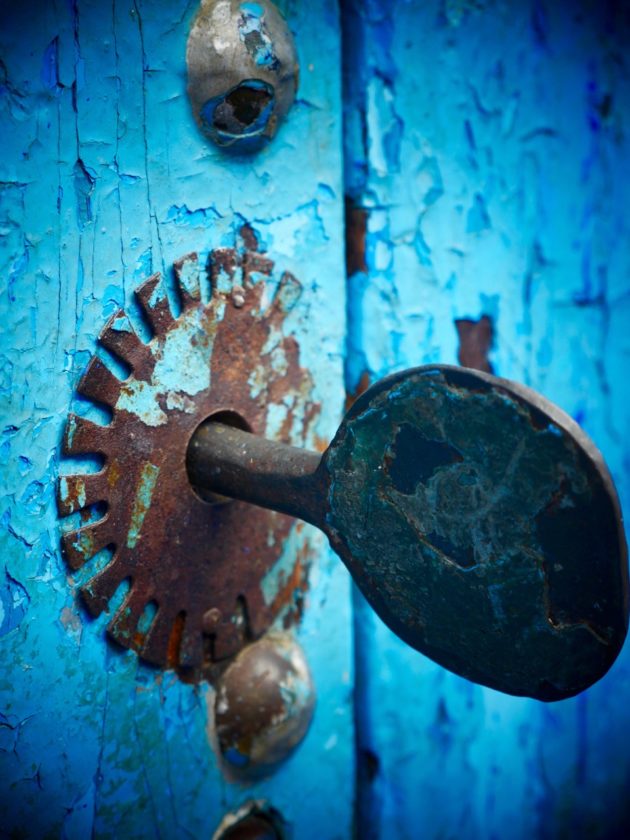
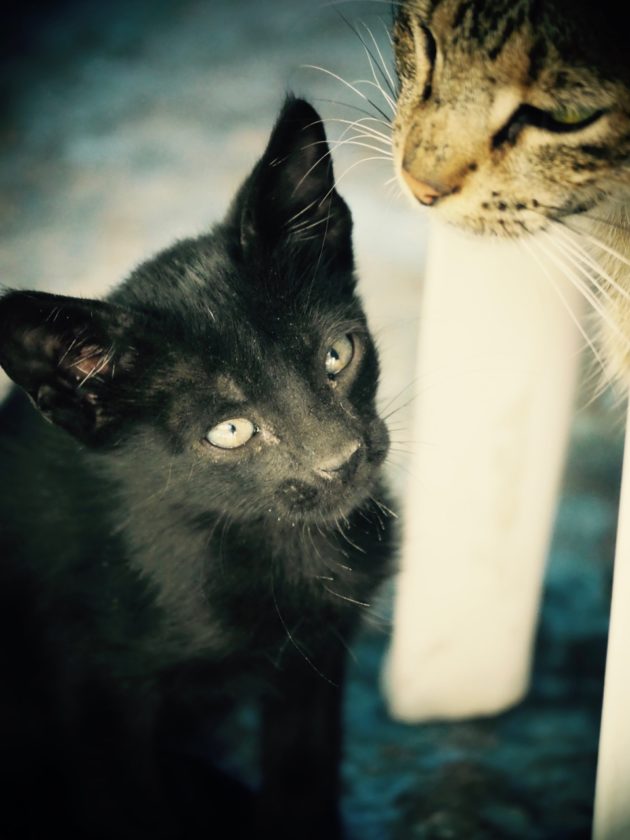
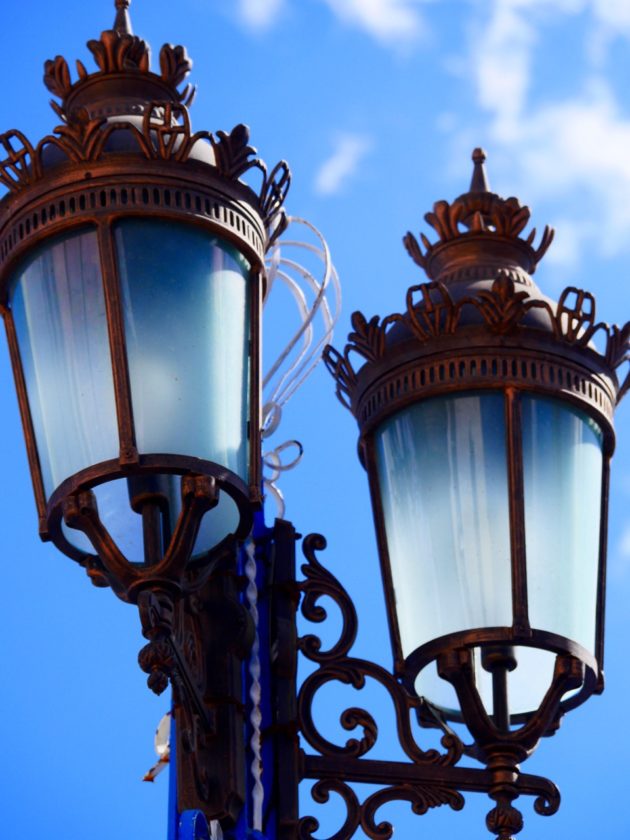
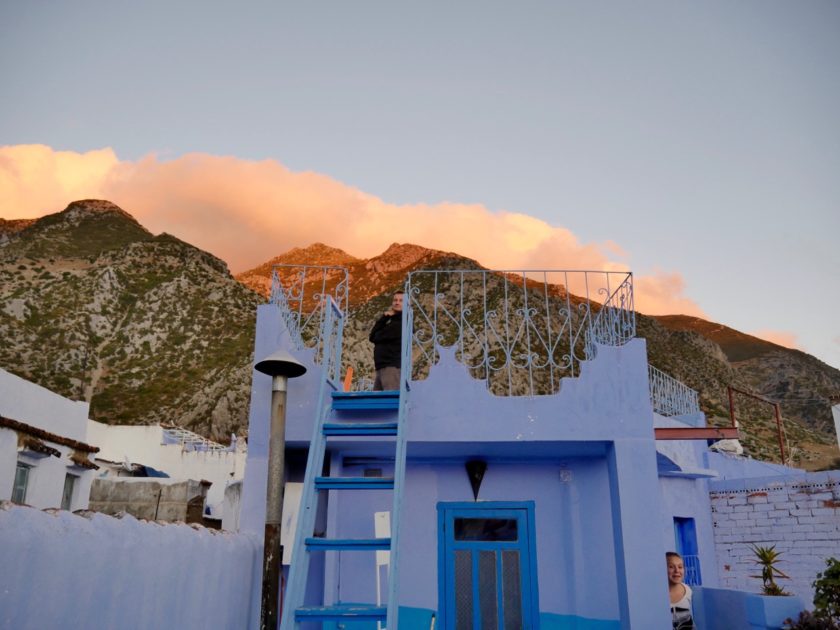
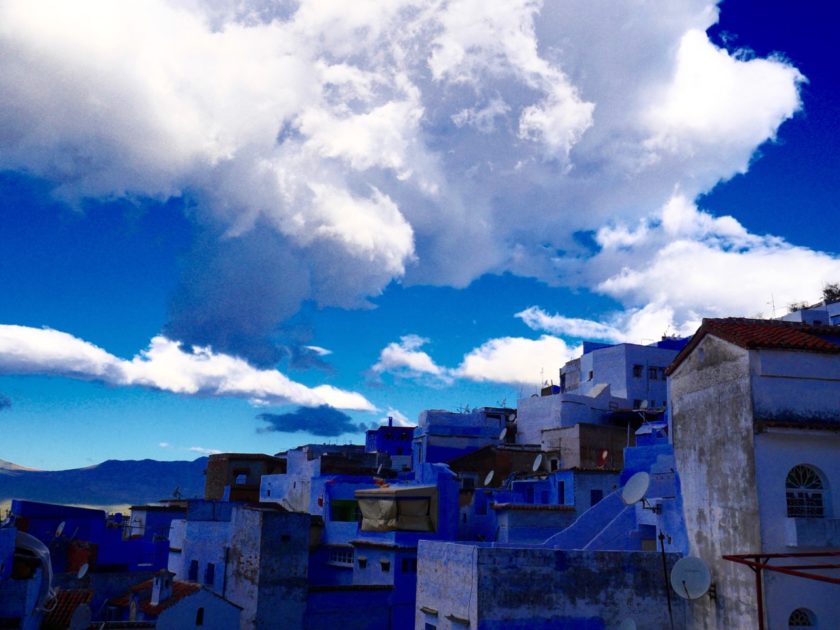
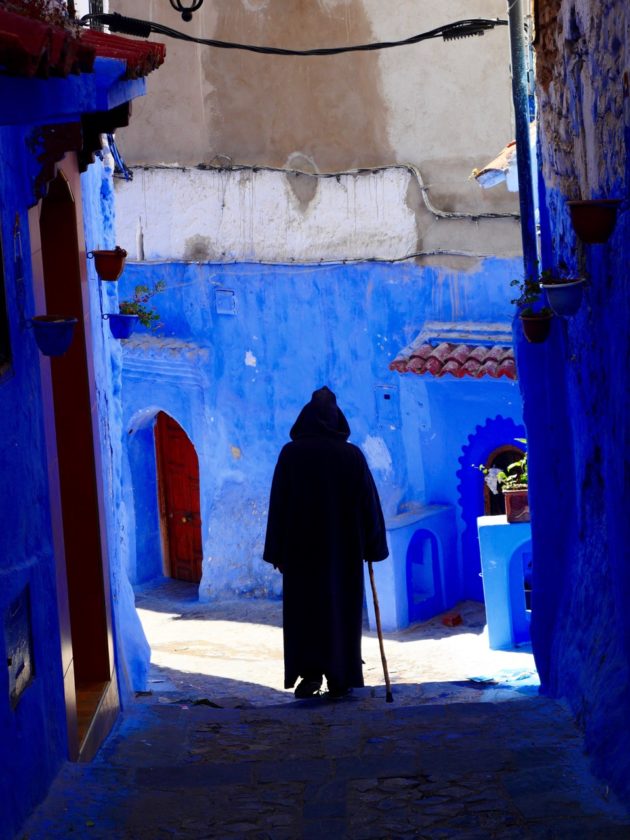


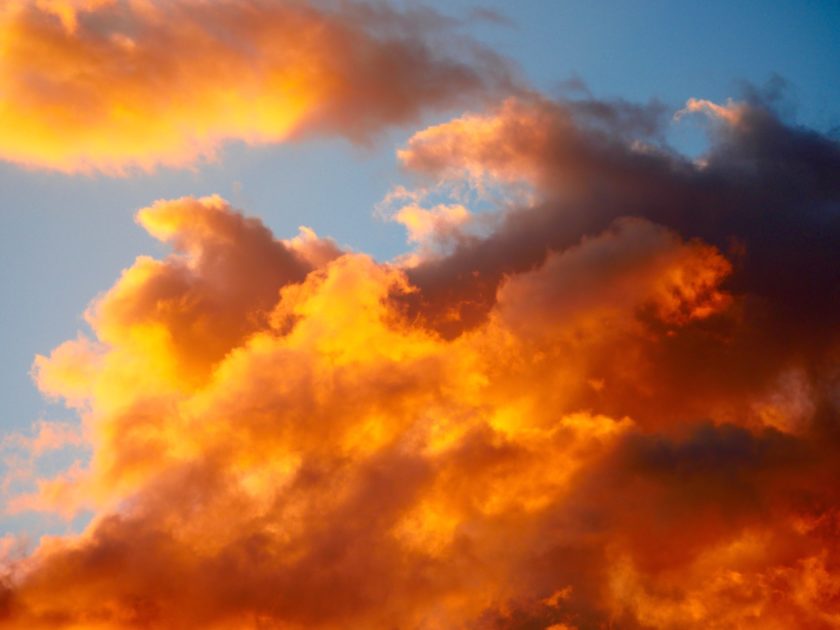
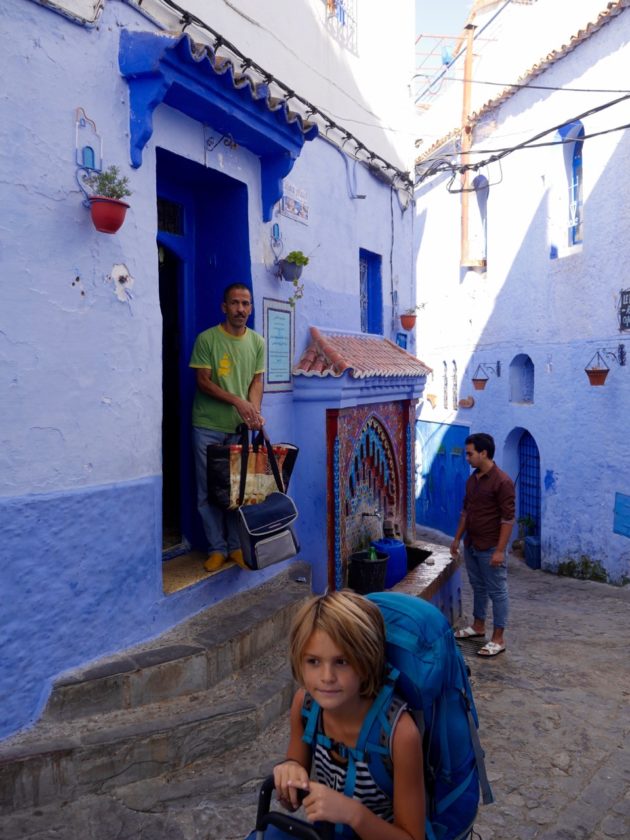
0 Comments